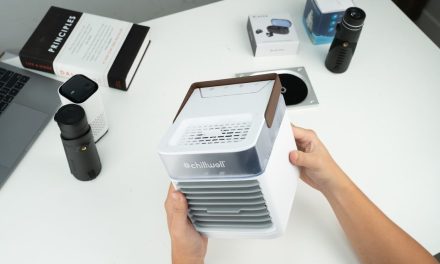The only way to deduct health insurance premiums is if you itemise your deductions on your tax return. Your premiums aren’t tax-deductible if you choose the regular health insurance deduction instead. While contributions to health insurance purchased by self-employed individuals are tax deductible in full, employer-provided health insurance is not tax deductible at all.
This is because of the fact that those who work for themselves are deemed to be their employers and are liable for their income taxes as a result. Additionally, any paid health insurance premiums, including COBRA payments, Medicare, or Medicaid premiums, are included in the definition of taxable income. For the calculation of taxes, you can use a 1099 tax calculator.
What Are Tax-Deductible Health Insurance Premiums for Self-Employed Individuals?
In terms of their health insurance rates, self-employed individuals face special challenges. They are not considered to be employees, hence they are not entitled to the same benefits as their full-time counterparts. A significant financial strain on all of the other costs associated with operating a business can result when self-employed individuals are required to pay the full cost of their health insurance.
Tax deductions are available to self-employed individuals who acquire individual health insurance plans, helping to lower the cost of their premiums. The IRS has out-of-pocket medical expenses and individual health insurance premiums as deductible premiums. These tax breaks can reduce your taxable income, which will result in a decreased annual tax burden for you. The Affordable Care Act’s (ACA) premium tax credit may also be available to self-employed people who buy their health insurance coverage. In the event that you obtain an Affordable Care Act-compliant plan and earn between 100% and 400% of the federal poverty line, this credit may assist defray the cost of your monthly premiums.
In the freelancer and sel-meployed space, 1099 forms are used to report all self-employed income. An example is the 1099k form that reports income from third party sources like Grubhub or DoorDash.
Various Health Insurance Deductions
COBRA insurance – For individuals with COBRA insurance, employer-sponsored health insurance premiums are withheld from their paychecks and paid straight to their health insurance provider. If you’re getting COBRA coverage through your spouse’s plan, you might see a separate deduction. Spouses and dependent children who lose coverage after a parent or spouse passes away or when they are no longer covered under the plan are given COBRA coverage. In this case, the premiums may be taken directly out of your spouse’s paycheck and paid to the health insurance company if you are receiving COBRA coverage through their plan. Keep track of any appropriate deductions if you are currently enrolled in COBRA so that you are not served some surpirses when it comes time to file your taxes.
Employer-sponsored plans: If you participate in this kind of plan, your employer will cover at least a portion of your insurance premiums. They only deduct a portion of the cost since deducting the full amount would be prohibitively expensive. The remaining sum is then covered by you personally. Employers typically withdraw this money from employees’ paychecks on a monthly or quarterly basis and deposit the funds into a health savings account automatically. In this manner, you can utilise it later on for deductibles. Talk to your HR person or check online using any online tax tool, such as FlyFin, if you’re still confused of how this works.
Health Insurance Through The Marketplace: Individuals who purchase health insurance through the marketplace may be eligible for a tax deduction to offset their premium payments. You need insurance that complies with the standards of the Affordable Care Act (ACA) in order to be eligible for this tax deduction.
Among those with high deductible health insurance policies, a high deductible health plan (HDHP) is one of the most widely used varieties of health plans. Your health plan’s deductible is the sum of money you must pay before it begins to pay for any medical expenses. By acquiring an HDHP, you lower your monthly premiums since you pay a larger proportion of your medical expenses up front. This is a fomidable ally if you’re trying to save money on your health insurance premiums or if you require a plan that only covers major procedures or emergency department visits.
Note: Health insurance is a deduction, therefore it will lower your taxable income. On the other hand, tax credits, like child tax credits, will lower the amount of taxes owed.
Medicare Payment – The cost of health insurance is subtracted from the Medicare premium. You can be qualified for a health insurance deduction if you receive Medicare benefits. Anyone who pays the Medicare Part B premiums is qualified for this deduction. Saving money on your medical expenditures is easy with the premium deduction. Only those with Medicare coverage, though, are covered. A further discount on health insurance rates may be available to those with Medicare plans.
Deductions that aren’t itemised may still be used.
The majority of taxpayers won’t be able to deduct the cost of health insurance as an itemised deduction. In general, the IRS only permits taxpayers to write off eligible medical expenses that exceed 7.5% of their adjusted gross income (AGI). Additionally, only taxpayers who itemise are qualified to deduct medical costs from their taxed income. Medical costs cannot be deducted from taxable income by taxpayers who take the standard deduction. The aforementioned guidelines do not always apply, nevertheless. For instance, self-employed people, aka 1099 employees, who pay for their employees’ and themselves’ health insurance premiums can deduct these costs from their taxable income. If they meet certain requirements, certain taxpayers may also be eligible to deduct the cost of their health insurance. For instance, Medicare Part B enrollees may be eligible to have a portion of their premiums deducted from their taxes. You should speak with a CPA for specific guidance if you want to know if you may write off health insurance premiums.
Bottomline: Health insurance is one of the most expensive expenses for the average family, and most Americans have some type of coverage. The majority of taxpayers do not know how to deduct the cost of their health insurance. Tracking your medical costs and determining how much you may save by claiming a health insurance deduction are simple tasks with the aid of a tool like FlyFin.
You may see how much you could save by claiming that deduction on your taxes by simply inputting the value of your health insurance premiums into the programme. There are no questions to answer and no complicated forms to complete because FlyFin was created with the typical American in mind. Both signing up and using it are significantly simpler and cost nothing.







Recent Comments